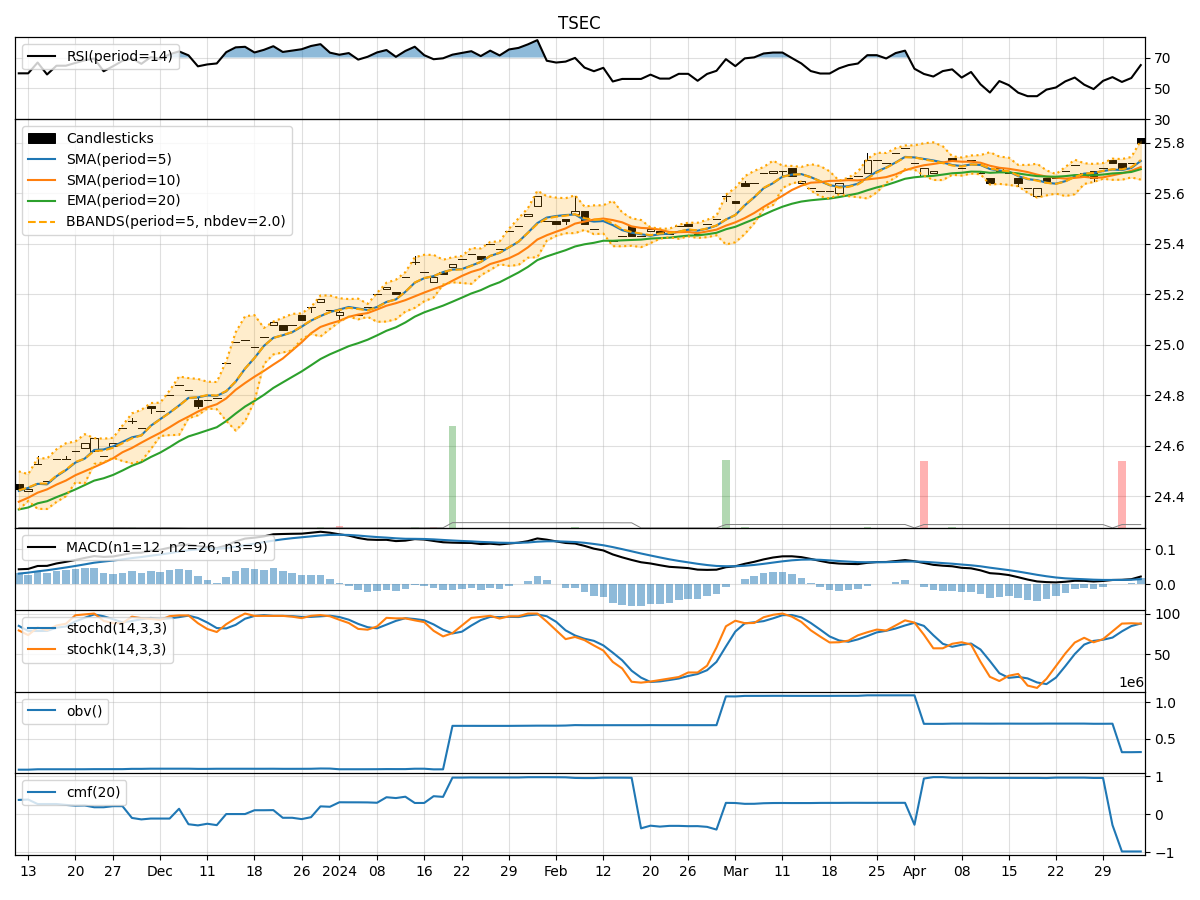
Technical Analysis of TSEC 2024-05-10
Overview:
In analyzing the technical indicators for TSEC over the last 5 days, we will delve into the trend, momentum, volatility, and volume indicators to provide a comprehensive outlook on the possible stock price movement in the coming days.
Trend Analysis:
- Moving Averages (MA): The 5-day Moving Average (MA) has been consistently above the Simple Moving Average (SMA) and Exponential Moving Average (EMA), indicating a bullish trend.
- MACD: The MACD line has been consistently above the signal line, with both lines showing an upward trend, suggesting bullish momentum.
Momentum Analysis:
- RSI: The Relative Strength Index (RSI) has been fluctuating but generally staying above 50, indicating bullish momentum.
- Stochastic Oscillator: Both %K and %D have been above 80, suggesting overbought conditions and a potential reversal.
Volatility Analysis:
- Bollinger Bands (BB): The stock price has been trading within the upper Bollinger Band (BBU), indicating an overbought condition.
Volume Analysis:
- On-Balance Volume (OBV): The OBV has been relatively stable, indicating a balance between buying and selling pressure.
- Chaikin Money Flow (CMF): The CMF has been negative, suggesting a bearish sentiment in the market.
Key Observations:
- The trend indicators suggest a strong bullish trend in the short term.
- Momentum indicators show signs of overbought conditions, indicating a potential reversal.
- Volatility indicators point towards an overbought market.
- Volume indicators reflect a balance between buying and selling pressure.
Conclusion:
Based on the analysis of the technical indicators, the next few days' possible stock price movement for TSEC is likely to experience a short-term correction or consolidation. The bullish trend may face resistance due to overbought conditions indicated by the momentum and volatility indicators. Traders should exercise caution and consider taking profits or implementing risk management strategies in anticipation of a potential pullback.